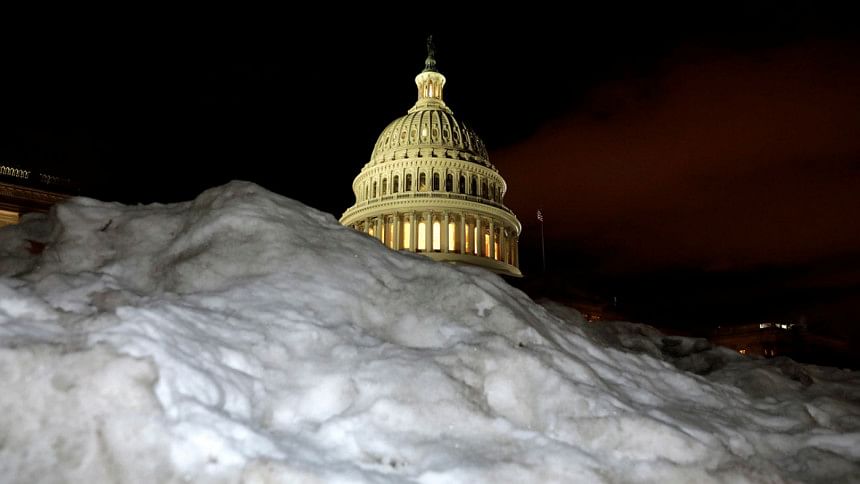Evictions loom for poor as US govt shutdown drags on

A growing number of poor, elderly and disabled people face eviction from their homes as federal housing assistance dries up under the US government shutdown, experts said.
The US Department of Housing and Urban Development (HUD) provides housing assistance but is mostly closed under the partial shutdown.
"For families and communities that rely on HUD programs, the effect of the shutdown is already being felt," said Doug Rice, senior policy analyst at the Center on Budget and Policy Priorities, a Washington-based research group.
"These effects will worsen rapidly and affect larger numbers the longer it continues," he told reporters in a media conference call late on Tuesday.
Huge swathes of the US government have stopped functioning in the standoff between Congress and President Donald Trump, who is demanding funding for his promised wall on the US-Mexico border.
Some 800,000 federal workers are not being paid, and the shutdown has hit a range of programs from food safety inspection and national park maintenance to NASA space research and the nation's consumer identity-theft tracking system.
One HUD-funded program provides financial support to about 2 million low-income people, paying about two-thirds of their rents.
More than 21,000 households have had their affordable housing rental assistance under that program not renewed, according to the National Low Income Housing Coalition, a Washington-based public policy group.
Two-thirds of those households include elderly or disabled tenants who earn, on average, less than $13,000 (10,000 pounds) a year.
More than 1,000 additional housing assistance contracts that provide funds to landlords expire at the end of next month, likely leaving low-income tenants unable to pay rent, experts said.
The costs of the HUD program's housing assistance for December and January came to about $15 million.
Landlords are being asked to use their own money to help cover costs rather than evict tenants, they said.
But that could mean foregoing building repairs or raising other rents as the White House and Congress continue to spar over the border wall.
"Certainly, by the time we get into February, there will be much bigger problems," said Ellen Lurie Hoffman, federal policy director at the National Housing Trust, a Washington-based group that promotes affordable housing.
A skeletal staff working at HUD is scrambling to find funding to renew some of the expired assistance contracts, but essentially the program has ground to a halt, experts said.
"Our No. 1 concern is protecting low-income residents," said Hoffman.
"But things are taking a long time, and many of them will not receive their funding."
HUD did not immediately respond to a request for comment.

 For all latest news, follow The Daily Star's Google News channel.
For all latest news, follow The Daily Star's Google News channel. 






Comments